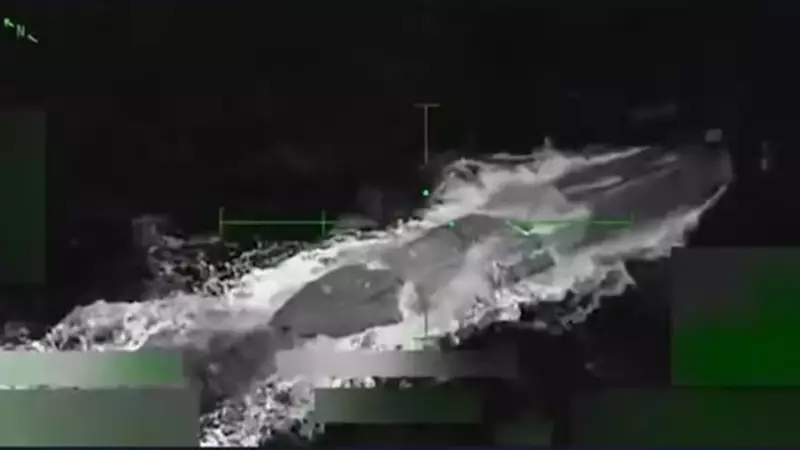
In a significant blow to international drug trafficking networks, the United States Coast Guard has executed coordinated strikes against multiple drug-carrying vessels in the Caribbean Sea. This decisive military action represents a major escalation in the ongoing battle against narcotics smuggling routes that have long plagued the region.
The Strategic Operation Unfolds
The operation, conducted with precision timing, targeted several go-fast boats that were actively transporting illicit substances. US authorities confirmed the destruction of multiple vessels engaged in suspicious activities across international waters. The coordinated strikes were authorized under existing protocols for combating transnational criminal organizations operating in maritime domains.
According to official statements, the decision to employ lethal force came after extensive surveillance and intelligence gathering confirmed the vessels' involvement in drug trafficking. The operation specifically focused on disrupting established smuggling routes that criminal groups have traditionally used to move narcotics from South America toward North American markets.
International Waters, Global Implications
This maritime intervention occurred in the Caribbean Sea, a critical transit zone for narcotics moving toward the United States. The strategic location of these strikes highlights the continuing challenge of monitoring vast ocean territories where criminal networks operate with relative impunity.
The Caribbean has remained a primary corridor for drug trafficking for decades, with sophisticated criminal organizations constantly adapting their methods to evade detection. This recent military action demonstrates the United States' commitment to employing more aggressive tactics against these fluid and elusive threats.
While specific quantities of seized narcotics weren't immediately disclosed, the operation successfully disrupted what officials described as a significant smuggling attempt. The destruction of multiple vessels in a single operation indicates the substantial scale of the criminal enterprise being targeted.
Broader Context and Regional Impact
This military action occurs against the backdrop of increasing concerns about drug trafficking through Caribbean routes. Maritime security experts have noted a resurgence in smuggling activity through these waters following increased enforcement along land borders.
The United States Coast Guard maintains a persistent presence in the region as part of multinational efforts to combat transnational crime. However, the decision to directly strike smuggling vessels represents a notable shift toward more proactive engagement strategies against narcotics traffickers.
Regional partners have expressed support for robust measures to address the drug trade, which has devastating social and economic consequences throughout the Caribbean. The proliferation of narcotics not only fuels addiction but also strengthens criminal organizations that undermine governance and security in vulnerable nations.
This operation follows patterns of increased military involvement in counter-narcotics missions, reflecting the complex challenges of securing maritime domains against non-state threats. The successful interception demonstrates the continuing evolution of tactics required to combat adaptive criminal networks operating across international waters.
As authorities continue to assess the full impact of this operation, the message to trafficking organizations appears clear: maritime smuggling routes will face increasingly sophisticated and determined opposition from international security forces.





